By Tom Dare
FASCINATING IMAGES from the Second World War showing an African American tank squadron nicknamed ‘The Black Panthers’ fighting their way across western Europe have resurfaced this week, as the Black Panther movie continues to take the country by storm.
Images from the collection show the group, officially known as the 761st tank battalion, rolling down a decimated street in Germany, while another shows American wartime hero General Patton pinning a silver star on African American soldier Ernest A. Jenkins while serving in France.
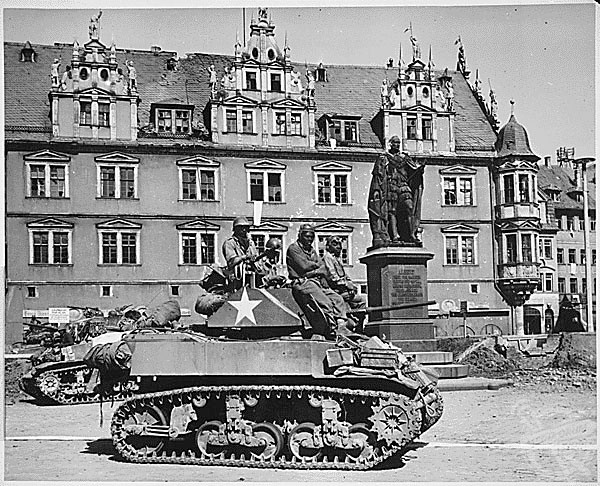
Further images from the collection show a tank machine gunner staring out of the hatch of his vehicle, while others show some of the posters regarding race that America produced during the Second World War. One reads shows a white man and an African American working on repairs together above the caption ‘Together we win’, an ironic slogan considering that America’s armed forces remained segregated throughout the war.
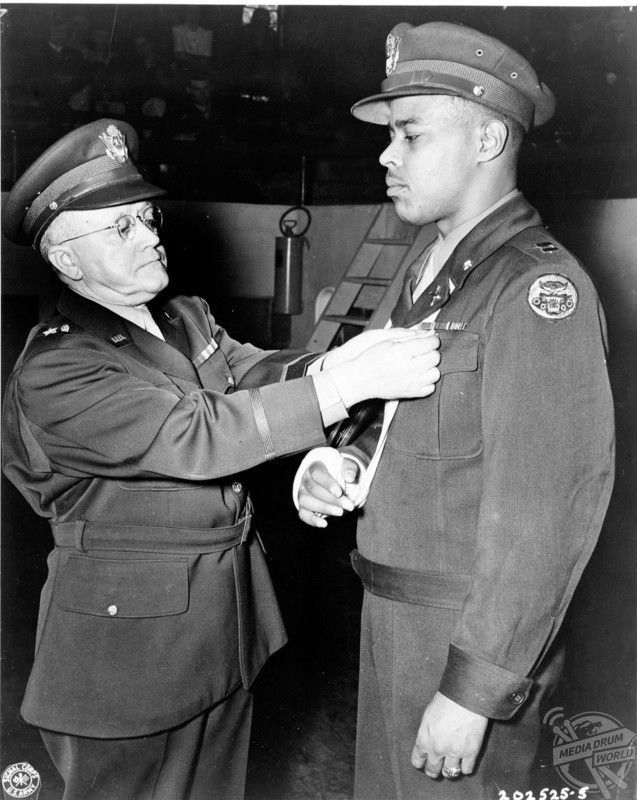
Deployed onto Omaha beach on October 10 1944, the 761st tank battalion served in northern France, the Rhineland and mainland Germany, being instrumental in the Battle of the Bulge from December 1944 to January 1945. The battalion, which consisted of six white officers, thirty African American officers and 676 enlisted African American men, was assigned to General George Patton’s US Third Army at his request. Ahead of combat missions, Patton address the unit, saying:
“Men, you’re the first Negro tankers to ever fight in the American Army. I would never have asked for you if you weren’t good. I have nothing but the best in my Army.
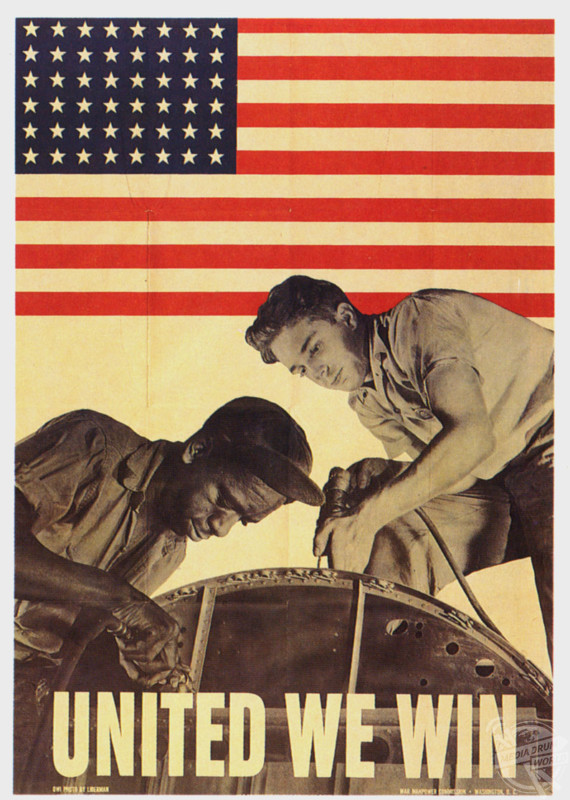
“I don’t care what colour you are as long as you go up there and kill those Kraut sonsofbitches. Everyone has their eyes on you and is expecting great things from you. Most of all your race is looking forward to your success. Don’t let them down and damn you, don’t let me down!
“They say it is patriotic to die for your country. Well, let’s see how many patriots we can make out of those German sonsofbitches.
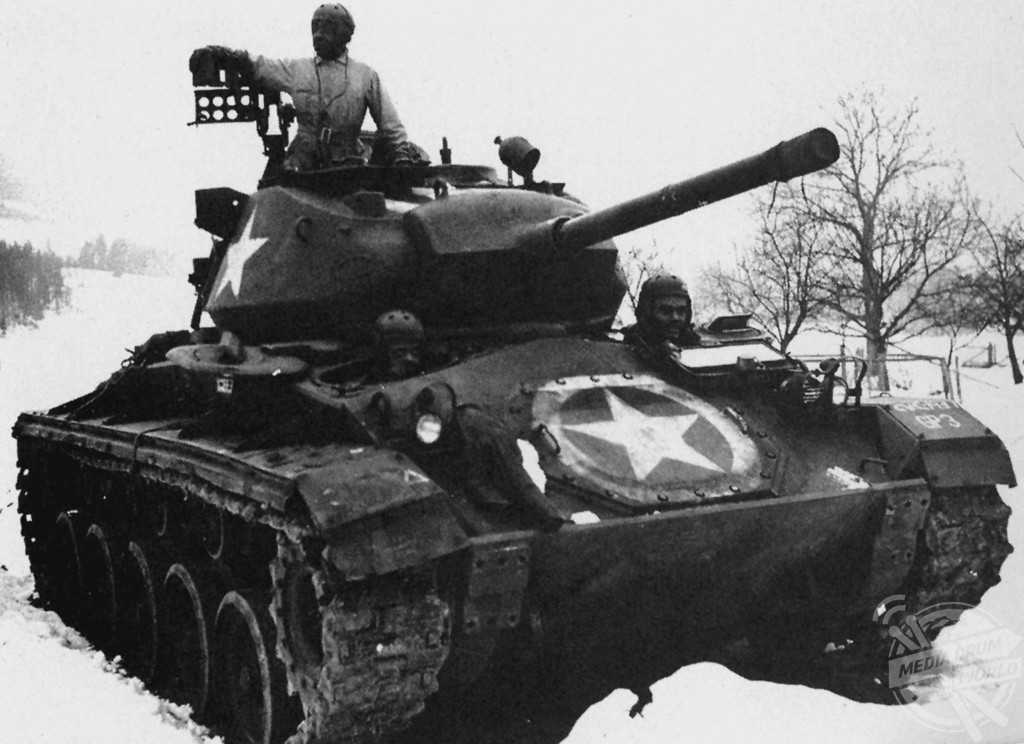
“There is one thing you men will be able to say when you go home.
“You may all thank God that thirty years from now when you are sitting with your grandson on your knee and he asks, ‘Grandfather, what did you do in World War II? you won’t have to say, ‘I shoveled shit in Mississippi.”
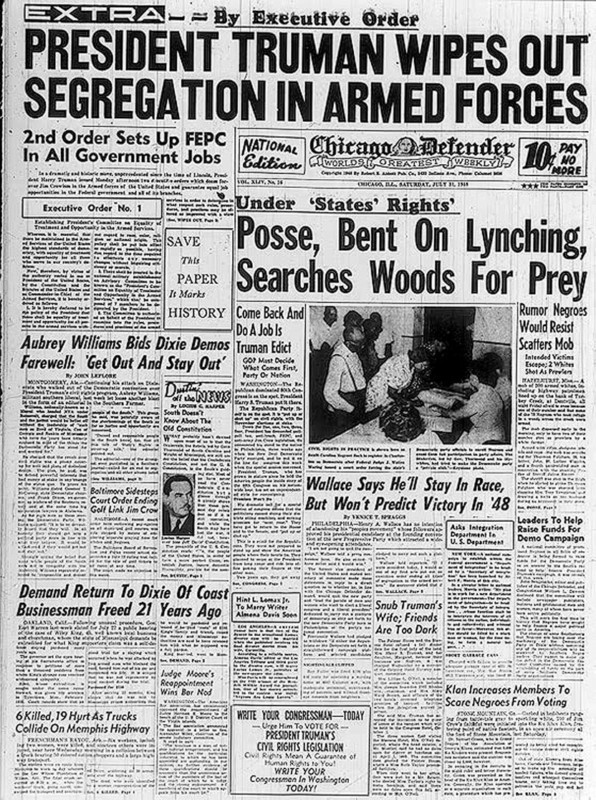
Often referred to as one of the most effective tank battalions in operation during the Second World War, the Black Panthers were given their name because of their insignia, which featured the head of a panther above the words: ‘Come Out Fighting.’ Over the course of their service the unit was awarded around 30 purple hearts, with Staff Sergeant Ruben Rivers awarded the Medal of Honour posthumously in 1997 for his valiant bravery.
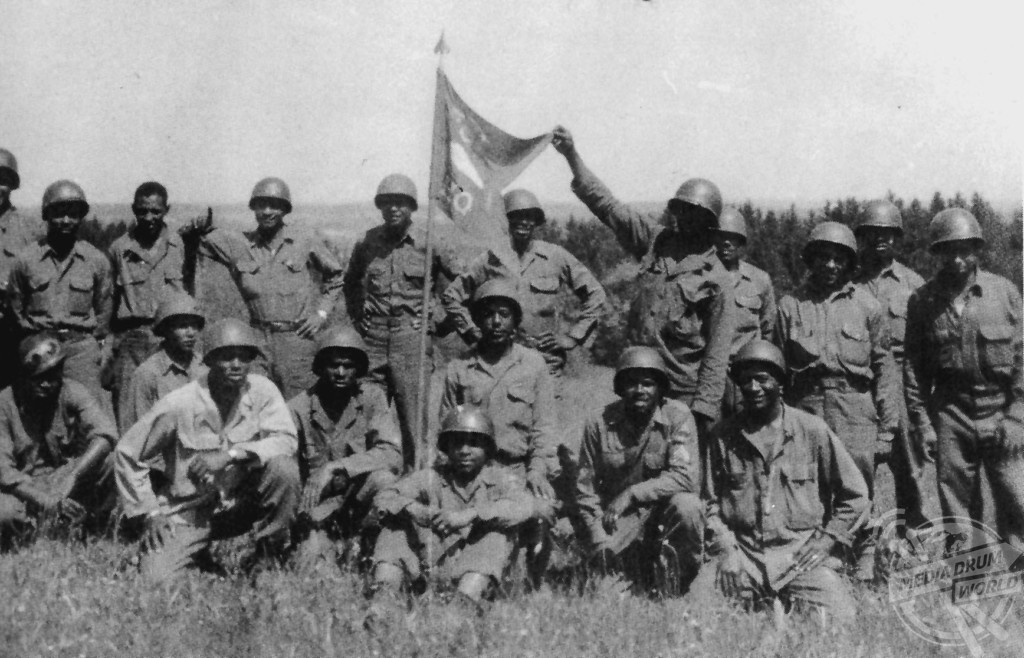
One of the 761st most famous members was baseball star and American national hero Jackie Robinson, who was reprimanded during training in the United States for refusing to move to the back of the bus and give up his seat to a white person. He wasn’t court-marshalled, as many had suggested, but was transferred to a different battalion before being deployed.
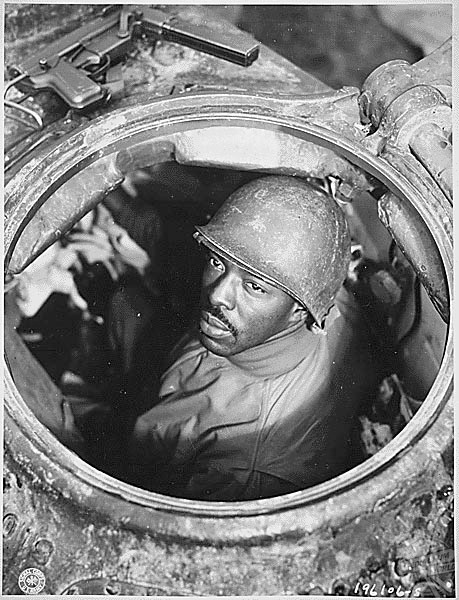
Racism remained rampant both during and after the war for the 761st, though, with even General Patton expressing a belief that “a coloured soldier can not think fast enough to fight in armour.” It wasn’t until 1978, over thirty years after the war ended, that the unit was rightfully awarded the Presidential Unit Citation by President Jimmy Carter.
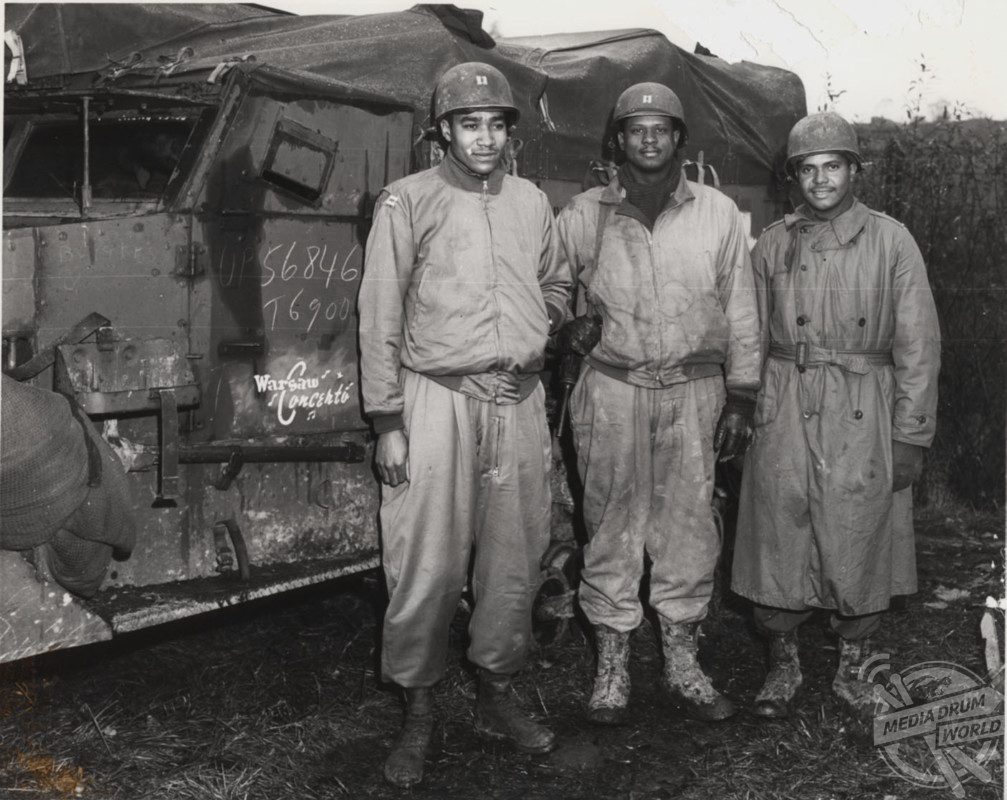
President Harry Truman finally signed an Executive Order ending segregation in the military in 1948, and the 761st became an integrated unit following this.







